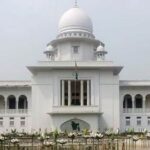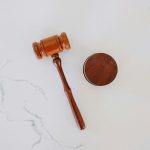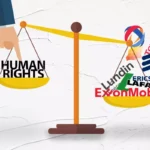The term ‘defame’ refers to causing harm to someone’s reputation by spreading false information, and causing a lot of damage as a person’s reputation is typically worth more than their actual assets.1 According to English law, defamation is generally classified into two categories: libel and slander.2 In English Law, there are distinctions between libel and slander; libel is considered a crime, whereas slander is not. In Bangladesh, libel and slander are both considered as crimes under section 499 of the Penal Code, 1860. Individuals must meet certain requirements to be accused of defamation in the country. The crime of defamation is not limited to written words or physical gestures; because in this day and age of technological advancement, most human interaction takes place online due to its convenience. However, this increased accessibility to communication also leads to the misuse of the medium, as many people post unwarranted and false remarks about others, causing harm to their reputations. This phenomenon is known as cyber defamation. Though cyber defamation has been punished by 3 to 5 years of imprisonment or a fine of 5 to 10 lacs taka, or both, under the Digital Security Act 2018,3 it is no longer punishable by imprisonment except by a fine of up to 25 lacs taka under the Cyber Security Act 2023.4
“Right to Privacy” means the “right to be let alone”5 which means the right to be free from any unwanted publicity and the right to live without any unwarranted interference by the public in matters with which the public is not necessarily concerned.6 It is defined as a component of a person’s life that is personal to the individual and includes personal information such as an email address, dwelling address, office address, marital status, employment data, and so on. This personal information is frequently shared with numerous organizations such as schools, offices, hospitals, and so on and sometimes that information is shared without following the legal guidelines which can lead to defamation in certain cases, such as sometimes personal information of others is leaked by the hospital for reputation or for being viral. As technology advances quicker, breaches and violations can occur even more readily in the current environment, necessitating the establishment of regulations to prevent the same.
The Constitution of the People’s Republic of Bangladesh grants privacy as a fundamental right which encompasses both online and offline spaces in the digital age. Article 43 of the Constitution remarks that “every citizen shall have the right, subject to any reasonable restrictions imposed by law in the interests of the security of the State, public order, public morality or public health – (a) to be secured in his home against entry, search and seizure; and (b) to the privacy of his correspondence and other means of communication.” However, no substantial privacy legislation has been established in the country in the 52 years after the Constitution was enforced. As a result, privacy violations continue to be a widespread occurrence. When someone transmits untrue information about another person, he is not only going beyond the limit of the right to free expression and speech (since freedom of expression does not imply the facility to say whatever you want), but he is also infringing the right to privacy of others. The link between privacy and reputation must be preserved at all costs because destroying a person’s reputation threatens their confidentiality.
Despite technology being one of the most significant advances and the fastest expanding field, there are concerns about preserving a person’s security and privacy. The tort of defamation and the right to privacy are related because defamation damages one’s reputation and invades one’s personal space, violating basic rights and must be punished as such by the law. Defamation is regarded as a breach of an individual’s privacy, especially when incorrect information hurts the reputation, as the libellous remark may contain private information of someone. Most of the time, courts must draw a line between safeguarding free expression and protecting the right to privacy but face challenges in drawing a line, since there is no universal model to ascertain what is permitted under freedom of expression while not infringing the right to privacy of others. Even while defamation doesn’t always happen online, it’s still important to look at how someone might have committed defamation. If defamation happens, it is critical to investigate how the individual received the material in the first place to make a false accusation against someone. As a result, there is some overlap between the two sectors.
Article 12 of the United Nations Declaration of Human Rights (UNDHR) states that “No one shall be subjected to arbitrary interference with his privacy, family, home or correspondence, nor to attacks upon his honour and reputation.”7 Everyone has the right to the protection of the law against such interference or attacks. Recognizing that private conversations are often recorded, intercepted, and leaked without the consent of the parties involved, the High Court Division of the Supreme Court of Bangladesh in The State and ors v Oli and ors8 reminded the Bangladesh Telecommunication Regulatory Commission of its ‘great responsibility towards proper compliance of the constitutional mandate of maintaining privacy in communication.’ Earlier in 2016 the court in Aynunnahar Siddiqua and Ors. v. Government of Bangladesh and ors9 observed that the ‘right to privacy is an essential foundation of the freedom of dissent. So this right cannot be undermined in the name of surveillance’ and also commented that collecting personal information to aid the Dhaka police did not violate the right to privacy, however, the police would have to ensure that this did not lead to unjust interference with the citizens’ right to privacy. More recently, in August 2021, a trial court in Jhenaidah reportedly chastised a civil servant for seizing a private citizen’s cell phone and reading his messages, noting that the actions amounted to an invasion of privacy rights because the messages were sent through an end-to-end encrypted private messaging application.10 In the case of Subramanian Swamy v Union of India,11 The Supreme Court of India ruled that one person’s reputation cannot be damaged at the expense of another person’s right to free expression. The court held that an individual’s reputation and privacy are essential aspects of their existence and should not be harmed.
Several areas need to be addressed since there is a correlation between reputation and privacy. If reputation is damaged, privacy cannot be preserved.12 Current defamation laws do not completely safeguard an individual’s privacy; while there are requirements for filing a defamation case, one cannot submit a privacy case since it does not fit the definition, even if both violations may occur concurrently. Celebrities and other influential individuals frequently have their privacy violated because news channels often leak details about their personal lives, invading their personal space and right to privacy. In other instances, these channels intentionally publish misleading facts about celebrities and other powerful people’s personal lives, to draw attention from viewers, which frequently have their privacy infringed and harm their reputation. In other cases, these networks purposefully provide false information to grab viewers’ attention, which damages their brand. We may, for instance, bring up the social media incident with the well-known eatery “Sultan’s Dine,” which had been accused of substituting dog meat for mutton. After a few days, the public realized that this information was false and was accelerated by some groups to damage the reputation of the eatery.13
Except for a few stipulations, the two ideas are inextricably intertwined. However, in the era of technology, people are occasionally subjected to privacy invasions because they erroneously feel it is their right to freedom of expression. When someone spreads information about another person exceeding the limit to exercise the freedom of expression, it not only breaches the right to express oneself, as outlined in the Constitution with certain limitations but also infringes the right of privacy of others.
- Dixon v Holden [1869] 7 Eq. 488.
↩︎ - Dr. RK Bangia, Law of Torts, (25th Edition), Allahabad Law Agency, Faridabad, 2020.
↩︎ - The Digital Security Act, 2018, s 29.
↩︎ - The Cyber Security Act, 2023, s 29.
↩︎ - Boyd v United States(1886), 116 US 616.
↩︎ - Warren and Brandeis, ‘The Right to Privacy’ [1890] Harvard Law Review
<https://groups.csail.mit.edu/mac/classes/6.805/articles/privacy/Privacy_brand_warr2.html>, accessed 5 December 2023.
↩︎ - The Universal Declaration of Human Rights [1948], a 12.
↩︎ - The State and ors v Oli and ors (2019) Lex/ BDHC/0128.
↩︎ - Aynunnahar Siddiqua and ors v Government of Bangladesh and ors (2017) 37 BLD 181.
↩︎ - Zia Chowdhury, ‘A UNO’s excess, private citizen’s rights violation and a district court’s bold decision’, The Business Standard, (Bangladesh, 01 October 2021) <https://www.tbsnews.net/bangladesh/court/jhenaidah-court-upholds-right-privacy-against-dsa-charges-310165> accessed 7 December 2023.
↩︎ - Subramanian Swamy v Union of India (2016) 7 SCC 221.
↩︎ - D Mangan, ‘The Relationship between Defamation, Breach of privacy and other legal claims involving offensive content on the internet’, Law Commission of Ontario, 2017.
↩︎ - Sadiqur Rahman and Shawkat Ali, ‘The meat of the matter: A planned attack to take down Sultan’s Dine?’, The Business Standard, (Bangladesh, 14 March 2023) <https://www.tbsnews.net/features/panorama/meat-matter-planned-attack-take-down-sultans-dine-599242> accessed 8 December 2023.
↩︎











